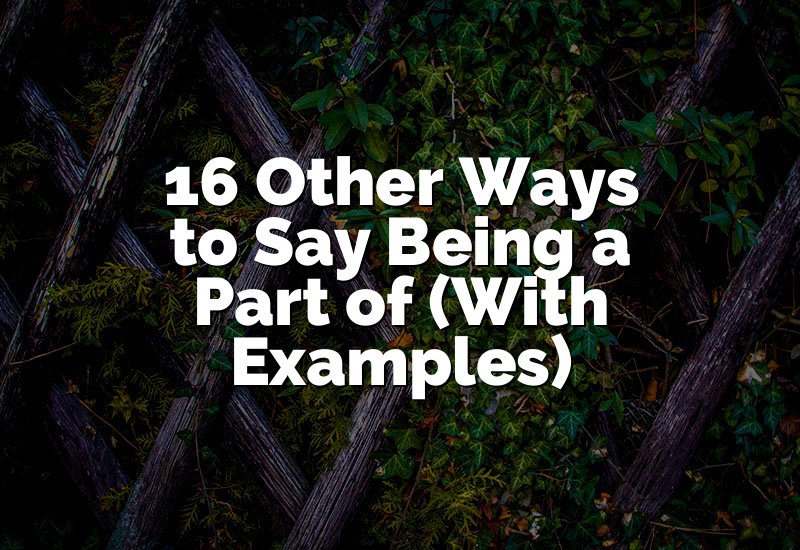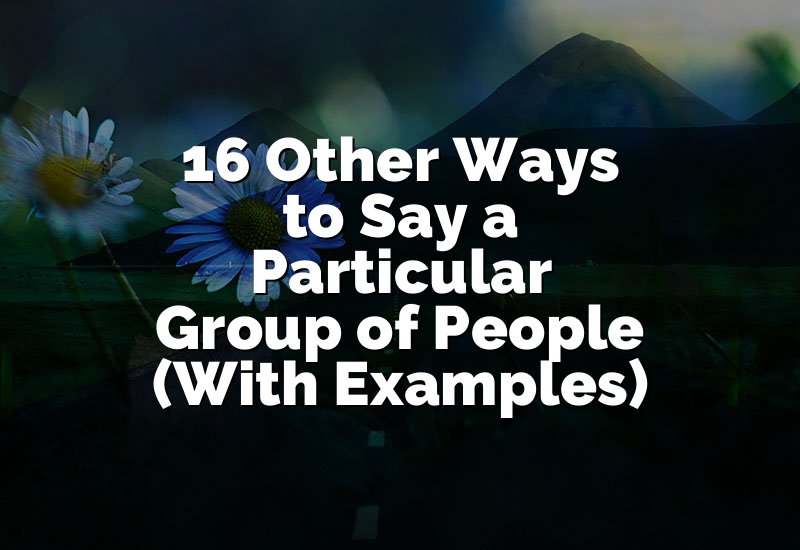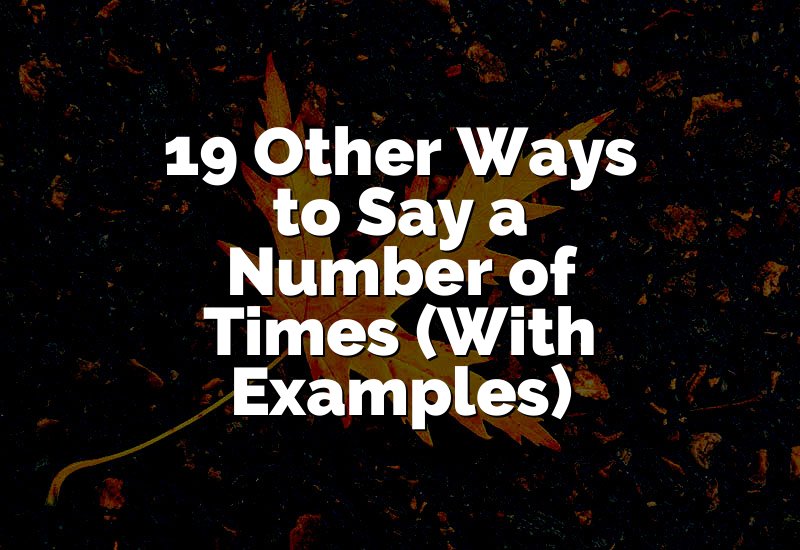You probably use the word ‘residence’ a lot when talking about homes, apartments, or places people live. In this article, we will explore 29 other ways to say residence. You will see words like dwelling, abode, and home. It is fun and easy to try them out in different sentences.
| Synonym | Meaning | Example |
|---|---|---|
| Home | A place where someone lives | She invited me to her home for dinner. |
| House | A building for people to live in | Their house has a big garden. |
| Apartment | A set of rooms in a building | He rented a small apartment in the city. |
| Dwelling | A place where someone lives | This dwelling is over 100 years old. |
| Abode | A place of residence | Welcome to my humble abode. |
| Villa | A large and luxurious house | They stayed in a villa near the beach. |
| Cottage | A small cozy house | We spent the weekend in a mountain cottage. |
| Mansion | A very large and impressive house | The actor bought a huge mansion downtown. |
| Flat | A British word for an apartment | She lives in a flat on the fourth floor. |
| Lodging | A place to stay temporarily | The travelers found cheap lodging nearby. |
| Homestead | A house and surrounding land | Their homestead includes a small farm. |
| Quarters | Living space, often for workers or soldiers | The officers returned to their quarters. |
| Cabin | A small wooden house | They stayed in a cabin by the lake. |
| Residence | A place where someone lives | The president's official residence is guarded. |
| Household | All the people living together | Their household includes grandparents and children. |
| Shelter | A place that provides protection | The animals found shelter from the rain. |
| Condo | A building with individually owned apartments | He bought a condo in the city center. |
| Flatlet | A small flat | She rented a flatlet near her office. |
| Homestay | Staying at a family's home | During vacation, they tried a homestay. |
| Duplex | A house divided into two homes | They live in a duplex with separate entrances. |
| Tenement | A building divided into apartments | The old tenement has many small units. |
| Boarding House | A house offering rooms to rent | Students stayed in a boarding house near campus. |
| Hostel | A place where travelers can stay cheaply | We found a hostel close to the station. |
| Studio | A small apartment with one main room | He works and sleeps in a studio apartment. |
| Lodge | A small house for temporary stay | They stayed in a mountain lodge for skiing. |
| Bungalow | A small single-story house | She lives in a cozy bungalow with a garden. |
| Flatshare | Sharing a flat with others | They agreed to a flatshare to save money. |
| Penthouse | A luxury apartment on top of a building | They bought a penthouse with a city view. |
| Habitat | Place where someone lives naturally | The forest is a habitat for many animals. |
Home
Home is the most common word to talk about the place you live. It is warm and personal. When you say ‘home,’ people think about comfort and family. It is often used in casual conversations. You can use it for houses, apartments, or even temporary places where you feel safe. Many people feel happy and relaxed when they say ‘home,’ because it shows more than just a building.
- I can't wait to go home after work.
- Their home is full of plants and flowers.
- She decorated her home beautifully for the party.
House
A house is a building where people live. It can be big or small, modern or old. Houses usually have rooms like bedrooms, kitchens, and living rooms. People often buy or rent houses for long-term living. It is a very practical word, and you can use it in both formal and casual conversations. Houses often show style, comfort, and the personality of the people living there.
- Their house has a red roof.
- We visited a new house in the neighborhood.
- The house on the corner is very spacious.
Also Read: 31 Other Ways to Say ORIGIN (With Examples)
Apartment
An apartment is a set of rooms in a building. It is often rented or owned, usually in cities. Apartments can be small or large and may have shared spaces like elevators or gyms. People living in apartments enjoy convenience and community. Apartments are common for single people, couples, and small families. You can easily say 'apartment' when talking about urban living.
- She rented an apartment near the train station.
- The apartment has two bedrooms and one bathroom.
- He decorated his apartment with modern furniture.
Dwelling
Dwelling is a word for any place where someone lives. It is more formal and can include houses, cabins, apartments, or huts. This word is often used in writing or official descriptions. You can also use it when talking about traditional or old living places. Dwelling shows the idea of a place where someone stays regularly.
- This dwelling has a beautiful garden.
- The ancient dwelling was discovered by archaeologists.
- He moved into a new dwelling last week.
Abode
Abode is another word for home or residence. It sounds a little fancy and old-fashioned. People often use it in polite or friendly ways when welcoming someone. You can say ‘humble abode’ to show modesty or ‘grand abode’ for something impressive. Abode is flexible and can describe different types of living places.
- Welcome to my humble abode.
- Their summer abode is near the lake.
- She invited us to her beautiful abode.
Villa
Villa means a large and usually luxurious house. Villas are often found in the countryside or near beaches. People use villas for holidays or vacations. They are more spacious than regular houses and may have gardens, pools, or terraces. Saying ‘villa’ gives a sense of comfort, style, and wealth. It is perfect when describing high-end homes.
- They stayed in a villa by the sea.
- The villa has a private swimming pool.
- We rented a villa for our summer holiday.
Cottage
A cottage is a small and cozy house. It is usually in the countryside or mountains. People often use cottages for vacations or weekend trips. Cottages feel warm, friendly, and peaceful. You can decorate them simply or traditionally. Saying ‘cottage’ brings a nice feeling of nature, relaxation, and homey charm.
- They spent the weekend in a mountain cottage.
- The cottage has a lovely fireplace.
- She painted the cottage walls white.
Mansion
A mansion is a very large and impressive house. It usually belongs to wealthy people. Mansions have many rooms, gardens, and sometimes swimming pools. Saying ‘mansion’ shows power, style, and luxury. You can use it when talking about someone's dream house or historical buildings. It gives a sense of grandeur and elegance that is exciting to imagine.
- The actor bought a huge mansion downtown.
- Their mansion has ten bedrooms.
- She dreamed of living in a mansion one day.
Flat
Flat is the British word for an apartment. It usually means a set of rooms on one floor of a building. People in the UK often say ‘flat’ instead of ‘apartment.’ Flats can be small or large, modern or traditional. They are common in cities and towns. Using ‘flat’ makes your English sound more local if you are in Britain.
- She lives in a flat on the fourth floor.
- Their flat has a balcony with a view.
- He cleaned his flat before the guests arrived.
Lodging
Lodging is a place where people stay temporarily. It can be a hotel, inn, or guesthouse. People use lodging when they travel or need a short stay. It is a practical word that often appears in travel conversations or booking websites. Lodging shows that the place provides comfort, shelter, and convenience, even if only for a few nights.
- The travelers found cheap lodging nearby.
- We booked our lodging for the weekend.
- They stayed at a cozy lodging near the station.
Homestead
A homestead is a house with surrounding land. It often includes farms, gardens, or animals. People use this word to show old-style living or rural life. Homestead gives a feeling of independence, family, and nature. It is usually associated with hardworking life and peaceful surroundings. Using this word adds a traditional and calm vibe to your sentences.
- Their homestead has a small farm.
- They built a homestead in the countryside.
- The homestead includes a vegetable garden.
Quarters
Quarters are living spaces, often for workers, soldiers, or staff. They can be part of a bigger building or separate small houses. People use quarters to describe official or temporary accommodations. Quarters show practicality, order, and shared living. You can use it in formal or casual contexts when talking about where people live for work or service.
- The officers returned to their quarters.
- Workers live in the company quarters.
- They decorated their quarters with posters.
Cabin
A cabin is a small wooden house. It is often in the mountains, forests, or lakesides. People use cabins for vacations or short stays. Cabins feel cozy, simple, and close to nature. Saying ‘cabin’ gives a sense of adventure, peace, and relaxation. It is perfect for describing holiday homes or retreats in nature.
- They stayed in a cabin by the lake.
- The cabin had a fireplace inside.
- She loved the wooden walls of the cabin.
Residence
Residence is a formal word for a place where someone lives. It is often used in official or legal contexts. Residences can be houses, apartments, or buildings. Saying ‘residence’ gives clarity and seriousness. It is good for formal letters, announcements, or official descriptions. Using it shows you are precise about the living place.
- The president's official residence is guarded.
- His residence is in the city center.
- They renovated their residence last year.
Household
Household includes all the people living together in a home. It may include family members, relatives, or roommates. Household shows relationships and shared living. It is useful when talking about daily life, chores, or responsibilities. Using ‘household’ gives more meaning than just a place; it talks about people and their interactions.
- Their household has five members.
- The household chores are shared equally.
- They welcomed guests into their household.
Shelter
Shelter is a place that provides protection and safety. It can be for people, animals, or even temporary living. Shelters are often used in emergencies, travel, or rough weather. Saying ‘shelter’ emphasizes security, care, and refuge. It is a meaningful word when talking about safety and support, not just a building.
- The animals found shelter from the rain.
- They stayed in a shelter during the storm.
- Volunteers helped at the local shelter.
Condo
A condo is a building with individually owned apartments. People often buy condos to live in cities. Condos usually have shared facilities like pools or gyms. Saying ‘condo’ shows modern living, convenience, and style. It is common in real estate conversations. Condos give a mix of private space and community life, making them popular in urban areas.
- He bought a condo in the city center.
- Their condo has a nice view of the park.
- They enjoy the condo's shared gym.
Flatlet
Flatlet is a small flat. It is perfect for one person or a couple. Flatlets are usually cheap and compact. People use flatlets when they want minimal living space. Saying ‘flatlet’ shows efficiency, convenience, and urban lifestyle. It is commonly used in cities where space is limited. You can describe cozy, personal spaces using this word.
- She rented a flatlet near her office.
- The flatlet has one bedroom and a kitchen.
- He enjoys the flatlet's small balcony.
Homestay
Homestay means staying at a family's home. It is popular with travelers or students. Homestays provide local experience, food, and hospitality. People often enjoy homestays because they feel welcomed and connected. Saying ‘homestay’ shows warmth, culture, and comfort. It is more personal than hotels and helps you experience real life in a new place.
- During vacation, they tried a homestay.
- The homestay included breakfast every morning.
- They enjoyed talking with the homestay family.
Duplex
A duplex is a house divided into two homes. Each home has its own entrance and facilities. People often live in duplexes with family or rent one part. Saying ‘duplex’ shows practicality, shared property, and modern living. It is common in cities and suburbs. Duplexes are comfortable and efficient for families or roommates.
- They live in a duplex with separate entrances.
- The duplex has two floors.
- She rents the upper part of the duplex.
Tenement
A tenement is a building divided into apartments. It is usually older and has small units. Tenements are common in cities with a lot of people. Saying ‘tenement’ shows urban living and sometimes modest conditions. It is useful when describing neighborhoods, history, or housing situations. Tenements can be simple but functional for many families.
- The old tenement has many small units.
- Families live together in a tenement.
- They renovated an old tenement building.
Boarding House
A boarding house is a house offering rooms to rent. It is popular with students, travelers, or workers. Boarding houses often include shared kitchens or bathrooms. Saying ‘boarding house’ shows practical and communal living. It is common in cities and near schools or offices. People enjoy boarding houses for short-term stays and meeting others easily.
- Students stayed in a boarding house near campus.
- The boarding house has shared meals.
- He lived in a boarding house last year.
Hostel
A hostel is a place where travelers can stay cheaply. Hostels often have shared rooms and bathrooms. People use hostels for vacations, trips, or backpacking. Saying ‘hostel’ emphasizes budget, adventure, and community. It is common in travel conversations. Hostels give a friendly and social environment for meeting other travelers.
- We found a hostel close to the station.
- The hostel had a kitchen for guests.
- They made friends at the hostel.
Studio
A studio is a small apartment with one main room. Living, cooking, and sleeping happen in the same space. Studios are common in cities and are cost-effective. Saying ‘studio’ shows compact and modern living. It is perfect for singles or couples who need simple space. Studios are cozy, functional, and easy to maintain.
- He works and sleeps in a studio apartment.
- The studio has a small kitchen.
- She decorated her studio with bright colors.
Lodge
A lodge is a small house for temporary stays. People use lodges for vacations, hunting, or skiing trips. Lodges are usually in nature, near mountains, lakes, or forests. Saying ‘lodge’ shows adventure, comfort, and escape. It is common when talking about holiday trips or weekend retreats. Lodges are cozy, welcoming, and ideal for relaxing.
- They stayed in a mountain lodge for skiing.
- The lodge had a fireplace in the living room.
- She booked a lodge for the weekend.
Bungalow
A bungalow is a small single-story house. It is cozy, easy to move around, and often has a garden. Bungalows are popular in countryside or suburban areas. Saying ‘bungalow’ shows comfort, peace, and homey style. It is a lovely word for describing family homes or vacation houses. People often feel relaxed when thinking about a bungalow.
- She lives in a cozy bungalow with a garden.
- The bungalow has a big porch.
- They enjoy morning tea at the bungalow.
Flatshare
Flatshare means sharing a flat with other people. It is popular with students or young professionals. Flatsharing is practical, affordable, and social. Saying ‘flatshare’ shows cooperation, community, and shared living. People enjoy flatsharing for saving money and making friends. It is a common word in urban areas where apartments can be expensive.
- They agreed to a flatshare to save money.
- The flatshare has three roommates.
- She enjoys living in a flatshare.
Penthouse
A penthouse is a luxury apartment on the top floor of a building. Penthouses have big terraces, views, and lots of space. Saying ‘penthouse’ shows wealth, style, and comfort. People often dream of living in a penthouse. It is perfect for describing high-end urban living. Penthouses are modern, elegant, and impressive.
- They bought a penthouse with a city view.
- The penthouse has a private elevator.
- She hosted a party in the penthouse.
Habitat
Habitat is a place where someone or something lives naturally. People often use it for animals or plants. Habitat shows natural, environmental, or safe living space. Saying ‘habitat’ emphasizes surroundings, safety, and suitability. It is useful for science, nature, and eco topics. You can also use it for human communities in certain contexts.
- The forest is a habitat for many animals.
- Birds built nests in their natural habitat.
- We visited a desert habitat for research.
Final Thoughts
There are so many ways to say residence, and each word brings its own feeling. Using different words makes your sentences fun and interesting. You can choose words depending on formality, comfort, or style. Explore these options and enjoy speaking or writing with variety. New words make conversations richer and more exciting for everyone.









